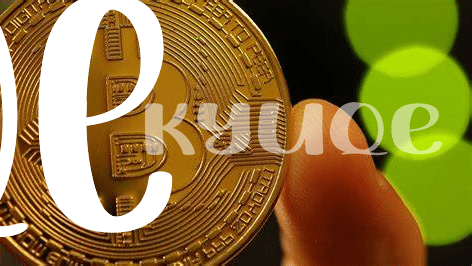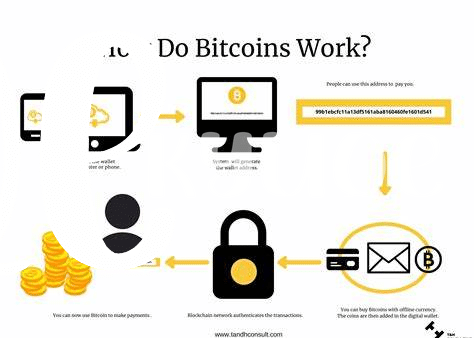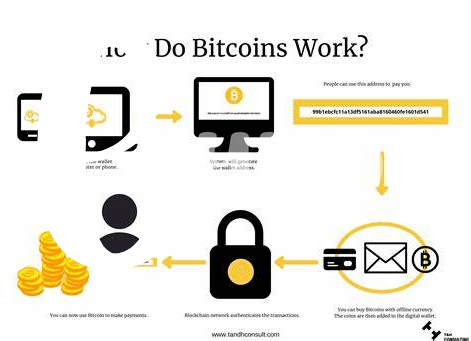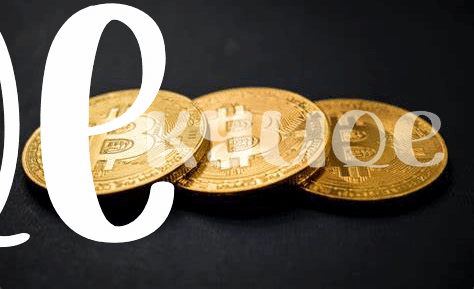📚 Fiction Meets Reality: Bitcoin’s Role in Dystopian Worlds

In the shadows of what could be, where society teeters on the edge of reality and fiction, the concept of Bitcoin finds a curious home. Picture a world not too dissimilar from our own, yet strained to the limits of dystopia. Here, Bitcoin isn’t just a form of money; it’s a beacon of hope and an emblem of rebellion. Through the pages of these narratives, we see a digital currency that defies the control of a crumbling societal order, offering a glimmer of autonomy in a world run by omnipotent governments or corporations. Its role is not just about buying and selling in secret, but as a tool that empowers individuals to fight back, to regain a portion of their freedom in worlds where this is a rare commodity. This narrative isn’t solely for entertainment; it serves as a mirror, reflecting our own world’s increasing disillusionment with traditional financial systems and sparking conversations about the future of money and individual sovereignty. As these fictional accounts bleed into our reality, they invite us to ponder, to question, and perhaps to prepare.
| Aspect | Description |
|---|---|
| Setting | Dystopian worlds where society is on the brink |
| Role of Bitcoin | A symbol of hope and rebellion against control |
| Impact | Empowering individuals, sparking real-world discussions on financial systems |
💡 Imagining the Unthinkable: When Money Goes Digital
Once upon a time, the idea that money could be completely digital seemed like something out of a sci-fi book. But just like the wildest dreams of authors, Bitcoin turned those dreams into reality. Picture a world where your coins live in your phone or computer, and you can send them to anyone, anywhere, without needing a bank in the middle. This isn’t just make-believe anymore; it’s how millions of people around the globe are choosing to handle their money today.
As we step into the pages of these dystopian narratives, we start to see the ripples Bitcoin has made not just in fiction, but in the real world too. Just like in those stories, Bitcoin is challenging the big bosses of banking and finance, showing us that there might be a new way to think about and use money. Its rise reflects a growing curiosity and concern over who controls our money and how secure it really is. If you’re keen on unraveling Bitcoin’s journey from obscurity to mainstream, including its darker side, check out this deep dive at https://wikicrypto.news/avoiding-scams-tips-for-securely-recovering-lost-bitcoin. These tales aren’t just fiction; they’re a mirror to our reality.
🚀 from Pages to Reality: Bitcoin’s Surge Mirrors Novels

In many stories we love, there’s a thrilling moment when imagination leaps off the page and becomes part of our world. Think about Bitcoin – a kind of money that’s completely digital. Once, this idea might have only been found in the pages of a science fiction novel, where heroes and villains traded in futuristic currencies, unbound by banks or borders. Fast forward to today, and it’s our reality. The rise of Bitcoin mirrors these tales, showcasing how something that once seemed so far-fetched is now a part of our daily lives, shaking up how we think about and use money.
As we watched Bitcoin grow from an interesting idea to a powerhouse in the finance world, it’s like watching science fiction come to life. This digital currency, free from the control of any government or institution, challenges the very fabric of traditional financial systems, just like in those dystopian narratives. The surge of Bitcoin hasn’t just changed the way we view money; it’s inspired us to imagine a new future. Through its highs and lows, Bitcoin continues to be a real-world example of what happens when the lines between the stories we read and the world we live in start to blur.
🌐 a New Power: How Bitcoin Challenges Traditional Systems

As we dive into the world of fiction to explore futuristic concepts, Bitcoin emerges as a revolutionary force, challenging the very foundation of traditional financial systems. Imagine a world where transactions no longer rely on physical money or even traditional banks. Instead, digital currency, like Bitcoin, becomes the heartbeat of economic exchange. This shift is not just a wild speculation of novelists but a reflection of our evolving relationship with money in the digital age. As this wave of change disrupts the norms, it raises crucial questions about power, privacy, and control. Traditional financial institutions, long-held as the custodians of economic transactions and trust, find themselves at a crossroads. Bitcoin, with its decentralized nature, offers a glimpse into a future where financial autonomy lies directly in the hands of individuals. This concept, once confined to the pages of dystopian narratives, resonates more with reality each day. For a deeper understanding, the the relationship between bitcoin and the dark web explained unravels some of the complexities surrounding the use of digital currencies and their implications for personal and global economics. In essence, Bitcoin’s rise mirrors a shift towards a world where individuals seek greater control over their financial destinies, challenging the long-standing power of traditional banks and perhaps, reshaping the future of money.
🔍 the Morality of Money: Ethical Dilemmas in a Digital Age
In an age where our wallets have turned digital, the question of what is right and wrong in managing money has gotten more complicated. Imagine a world where every transaction, every penny earned or spent, is a line of code zooming through the internet. Here, Bitcoin isn’t just a form of currency; it’s a symbol of freedom for some, but a source of concern for others. As it steps away from traditional banknotes and coins, and governments’ watchful eyes, it brings up big questions. Is it more just to let everyone control their own digital wallets, away from the prying eyes of big banks and regulations, or does this freedom come at a cost, making way for hidden, perhaps not-so-noble transactions? This dilemma isn’t just a storyline pulled from the pages of a dystopian novel; it’s the reality we’re navigating. Our journey through the ethical maze of digital currency shows us that the morality of money isn’t black and white. Sometimes, it’s as cryptic as the blockchain itself.
| Aspect | Traditional Money | Bitcoin |
|---|---|---|
| Control | Centralized (Banks/Governments) | Decentralized (Users/Technology) |
| Transparency | Limited | Blockchain ensures transparency |
| Accessibility | Dependent on banks | Internet access is all that’s needed |
| Morality | Regulated but prone to manipulation | User-driven, raises ethical dilemmas |
🤔 Predicting the Future: Lessons from Fiction to Real Life

Stories often paint pictures of tomorrow, urging us to think about what might lie ahead. In the realm of digital currencies, like Bitcoin, tales from dystopian novels are not just wild guesses; they offer us glimpses into potential futures where traditional money systems transform or even disappear. These narratives challenge us to consider how digital currency could reshape our society, economy, and ethical standards. They prompt discussions on privacy, power, and the essence of money in a world that’s rapidly moving online. Imagining the future through the lens of fiction can help us prepare for the changes that lie ahead. As Bitcoin continues to evolve, learning from these stories could be key to navigating the new digital financial landscape. For those already navigating this world, ensuring the safety of digital assets is crucial. To secure your digital future, consider recovering lost bitcoin: techniques and advice explained, offering solid steps towards safeguarding your investments. Remember, the lessons from fiction aren’t just fantasies; they’re signposts to the roads we might soon walk.
